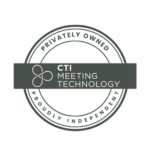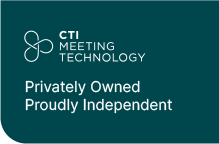Scientific conferences are a hub for sharing knowledge, ideas, and research. Designing an attractive meeting program will bring attendees and renowned speakers to the meeting, so abstract selection is one of the most critical parts of the meeting. When cooking a meal, the ingredients you choose will determine if the dishes are good; the same happens with the content of your meeting!
And to get the best “ingredients” for your conference, you need a reliable submission and selection system. Abstract management goes beyond just handling submissions, including communicating with submitters, reviewing them, accepting papers, and slotting them into the meeting program, among other processes.
Handling this influx of documents can be overwhelming. Imagine juggling hundreds of submissions, putting them into the right category, assigning the right reviewers, and communicating the result to each author. It might take you and your staff weeks – or even months! – just to sort out the content. That’s where abstract management software comes in handy, transforming that chaos into streamlined efficiency.
—
Abstract management software is much more than a place to collect abstracts. This tool can collect, evaluate, and share submissions all from one platform. Here’s how:
- Submission Portals: Picture a user-friendly gateway where authors submit their abstracts. No more paper forms or manual data entry—just seamless uploads.
- Intuitive Interface & Communication: Researchers, academics, and professionals rely on a single software to share their insights and connect with each other.
- Automated Notifications: Deadlines, acceptance notifications, and review updates—all delivered promptly. No more missed opportunities.
Understanding Abstract Management Software
Abstract management software is the place for submitters to upload their papers. Later, the event organizers manage these papers through the same platform. There are many moving parts during the abstract submission process, which makes it a critical part of event planning. Event planners must coordinate submitters, reviewers, and staff to ensure they have enough time and resources to complete their assigned tasks. These papers also need to undergo rigorous peer review by experts in the field. This ensures quality and relevance, maintaining consistency during the reviewing process.
Streamlining the Submission Process
While it’s possible to handle each aspect of your event separately, the truth is that a centralized system brings numerous advantages to both submitters and organizers.
Doing everything from one platform means that authors can benefit from a simplified submission process, reducing the time and effort required to upload their work. Meanwhile, staff can manage and track abstracts directly from the platform, eliminating the need for manual data entry and reducing the risk of errors. The user-friendly interface and tools make it a breeze for participants to navigate the platform. Fewer loops and less bureaucracy!
Organizers should also choose software with room for customization, tailoring the system to the specific event requirements and the host organization’s goals. Likewise, be sure the software is scalable and can ramp up to even the largest conferences.
And of course, you can’t forget about security. Submissions contain a lot of personal data, so be sure the software has a robust security system to ensure confidentiality.
Efficient Review and Selection Process
Abstract reviewing ensures the quality of content presented at your event. However, the manual tasks—assigning abstracts, balancing reviewer workloads, and overseeing the entire process—can be overwhelming. Why not let event technology do it for you?
Review management software automatically assigns abstracts to reviewers specialized in the topics covered, eliminating the need for spreadsheets and manual allocation. Here are some features to look for in abstract management software:
- Smart Review Assignments: Reviewers are assigned abstracts in bulk, but these can be easily switched to a different reviewer in case of conflicts of interest.
- Blind Reviews: Anonymity promotes unbiased evaluations.
- Feedback Management: Reviewers provide insights and comments within the system for transparent decision-making.
- Streamlined Communication: Organizers and reviewers can communicate via the virtual platform to ensure a smooth process and reduce miscommunication.
- Comprehensive Analytics & Reports: The analytics tools available offer valuable insights to identify patterns, trends, and areas for improvement based on the review data, which can be very helpful for future meetings.
Apart from these features, other tools can help organizers manage the review process, such as offline reviewing, scoring monitor, quick score option, or exchange bin. Try giving your reviewers as many options as possible to simplify their part in the meeting.
Enhanced Collaboration and Communication
Effective abstract management needs a collaborative system. Organizers can use real-time collaboration tools and streamline communication by conducting every meeting process through a single platform. For an even better experience, organizers can set up multi-step notifications, meaning a second email will be sent after the recipient performs a certain action.
Other task management tools like the program planner allow staff to stay organized, meet deadlines, and keep the gears turning. As you can see, the key to efficient abstract management is to rely on software for all the repetitive tasks to save time and focus on other areas.
Improved Data Management and Security
Submitted abstracts often contain confidential information and unpublished research results. Once your abstracts are in, your duty as an organizer is to ensure that the information is safeguarded and can only be accessed by those who have permission:
- Secure Storage: Encryption and access controls protect sensitive content and prevent unauthorized users from accessing it.
- Permissions: Organizers and staff can easily define who can view, edit, or review abstracts.
- Analytics: The software dissects data, discovering patterns and trends that help organizers make better-informed decisions.
Efficiency and Cost-Savings
In short, abstract management software offers a dual advantage: time savings and cost-effectiveness:
- Less Admin Burden: More time for planning, less paperwork.
- Timely Decisions: Faster review cycles mean quicker acceptance and program design.
- Cost-Effective Solutions: Abstract management software is an investment that brings tangible benefits, minimizing manual tasks and streamlining the whole abstract submission process.
Wrapping Up…
The software you use for abstract management will look different according to your needs and goals, but here are some key features that are must-haves to streamline the abstract management process:
- Centralized Platform: A place where all abstract-related activities converge, simplifying coordination and communication.
- Separate Portal for Abstract Submission: Submitters can access a separate Portal to upload their work. They only need to create an account.
- Session Builder: Organizers can see an overview of the meeting program and design or reorganize sessions.
- In-App Communication and Multi-Step Communications: Real-time communication within the software keeps everyone informed and ensures timely updates.
- Customization Tools: Tailor the system to your event’s unique requirements.
- High Scalability: The software can adapt to manage any amount of content, whether a small symposium or a large conference.
- Analytics and Reporting: Identify trends, evaluate success, and make informed decisions.
Leveraging Event Technology to Simplify Meeting Management
Abstract management software isn’t just a tool for collecting papers; it’s made to share knowledge and research. Event technology is quickly taking a central role in event planning, and abstract management is one of the areas where software can be used to make it a smoother process.
Are you looking for a solution to manage the abstract management process from start to end in a single platform? We got you! Explore CTI’s abstract management software and its key features, or schedule a call with one of our experts to discuss your specific needs.





